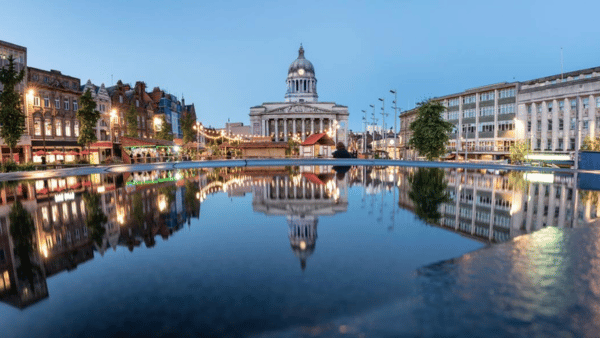134,000 young people sought mental health support on social media last year, according to RSA estimates
Young people risk “romanticising” mental illness as they to turn to each other for support in place of professional mental health services, a study of teenagers in Greater Manchester warns.
Listening to Young People Online by the Royal Society for the encouragement of Arts, Manufactures and Commerce estimates 134,000 young people in the UK doing sought mental health advice online – from friends, peers or professionals – between July 2017 and May 2018.
Researchers found the most common topic of conversation online among both young men and women was depression, but problems with sleep and issues surrounding tiredness and fatigue were more prevalent among young men; meanwhile young people tend to talk about mental health in the evenings during the school week.
The study looks at the issue both nationally and within Greater Manchester, noting that the “Manchester Resilience Hub” – set up in the wake of the May 2017 arena attack – has been particularly effective in communications and engagement outreach to young people who may need their services, as found in the Kerslake Review into the attacks.
But beyond this specific support for those affected by the events of May 2017, the report finds a noticeable difference in Greater Manchester between the use of social media by young people, and the support services on offer by providers.
While peer-to-peer support can be helpful when moderated – for instance Big White Wall lets people share advice but is overseen by professionals – the report warns unmoderated platforms risk mental health being “romanticised” with dangerous consequences like self-harm or suicide.
Forums like the Student Room are often commonly-used platforms for young people seeking to access peer-to-peer support, but researchers found impartial advice about treatment and signs and symptoms of mental illnesses hard to come by on these and similar forums.
But traditional news brands like the Manchester Evening News and BBC 5 Live helped steer young people towards relevant services through responsible reporting and signposting, the report notes.
The study concludes that public services must make greater efforts to proactively reach young people starting a conversation about mental health online, recommending:
- Piloting an NHS “online 101” service in selected local authority areas to proactively work across platforms such as Twitter, Facebook, Tumblr and Instagram, and through forums, to respond to concerns about mental health that young people talk about online, while also improving the quality and access to information about diagnosis and support services, both locally and nationally.
- Health bodies and social media companies work together to develop a coordinated approach to tackling mental ill-health online. This could pilot techniques such as offering free targeted advertising for a service on their platform.
- Existing expert support providers such as Big White Wall, the Samaritans and Childline share their experience of how to develop a ‘dialogue’ approach for young people who are raising mental health issues online.
Tom Harrison, researcher at the RSA, said:
“Our study estimates 134,000 young people accessed mental health support online last year – much of which came from supporting one another.
“The risks attributed to being insufficiently responsive to increased awareness of mental ill-health among young people are large. Our research uncovered a huge amount of peer-to-peer support and there is much to celebrate in that. However, a culture of openness can lead us to being hostages to fortune as more awareness leads to more conversations that risk confusing and misdirecting young people to sources of information and advice which lack credibility.
“Not only must we improve the way we engage with young people online, this must be reinforced with increased provision: earlier and far more proactively.
“But social media is not only a platform for people to access mental health services - increasingly it appears to be a driver of ill-health in itself. This places a moral duty on still commonly-used platforms like Instagram and Facebook to help cash-strapped mental health providers reach the people who will benefit the most from professional advice and support.”
ends
Contact:
Ash Singleton, RSA Head of Press, ash.singleton@rsa.org.uk, 07799 737 970.
Related news
-
Groundbreaking commission to supercharge East Midlands launched
The RSA and the East Midlands Combined County Authority have launched the Inclusive Growth Commission, which will identify and action radical plans to unleash potential and supercharge prosperity in communities across the East Midlands.
-
Landmark new report to unleash potential of UK as a creative superpower
The RSA, Arts Council England and the Creative PEC have launched a new report setting out a bold vision for the UK’s creative industries unlocking tens of billions of pounds in economic potential and cementing the UK’s reputation as a creative superpower.
-
‘Muse’ at RSA House: the new cocktail oasis tucked away behind the bustling strand
The new luxury cocktail bar will open its doors this November, serving sustainable, British cocktails in collaboration with Idyll Drinks.



Be the first to write a comment
Comments
Please login to post a comment or reply
Don't have an account? Click here to register.